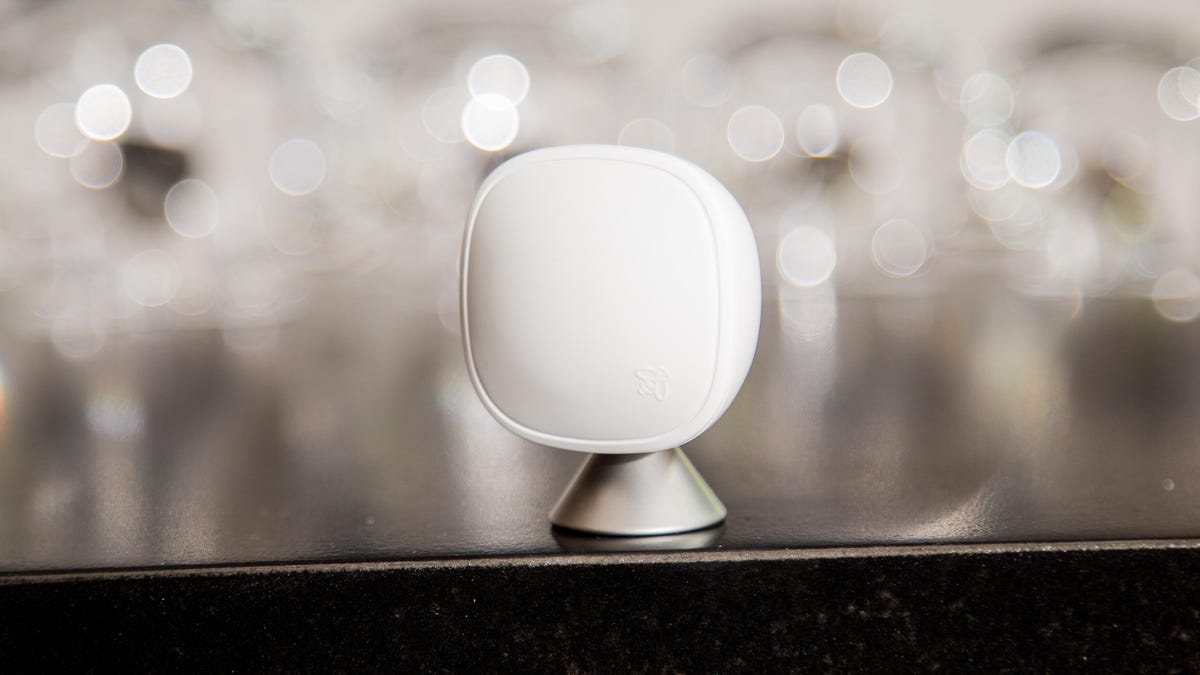
At the most basic level, smart thermostats do the same thing as "dumb" ones: Both regulate your home's air conditioning and heat. But smart models tack on additional ways to interact with your thermostat, usually through an app on your phone and with voice commands via Alexa, Google Assistant or Siri. They're convenient.
Did you forget to adjust the thermostat before vacation? No problem -- just open the app and make tweaks from your phone. Have a family member with a disability that affects mobility? They can use voice commands to change the temperature.
There are various studies about whether smart thermostats actually save money, and if so, how much. "Smart thermostats that have earned the Energy Star [rating] go through an independent certification process that verifies energy savings based on extensive field data," according to Energy Star, an efficiency standard backed by the US government.
Basically, Wi-Fi-enabled thermostats share common features, that, if used correctly, will help you use less energy and save you money over time. Keep reading to learn more about this energy-saving smart device that's good for the environment and your wallet.
A note on regular, non-smart programmable thermostats
You don't need a smart thermostat to set a standard heating and cooling schedule. Just get a programmable thermostat and lock in the temperature settings you want at different times throughout the week. This approach works best if you have a fairly consistent home and away schedule week to week -- or if you don't mind making regular adjustments based on your changing schedule. There's nothing wrong with that approach; Energy Star says a programmable model used correctly can add up to $180 in yearly savings.
What sets smart thermostats apart
Smart thermostats expand on the capabilities of programmable models. Below I've identified four smart thermostat features and accessories that give you even more control over your home's HVAC system.
Automatic home and away modes
Unlike regular programmable thermostats, smart thermostats "know" when you're home and when you aren't. The Ecobee SmartThermostat with Voice Control has a built-in occupancy sensor. If the thermostat doesn't sense your presence during your normal "home" time, it will automatically switch the thermostat to away mode. The same is true for away mode. If you're normally away from home between the hours of 9 a.m. to 5 p.m., but you work from home on the occasional Friday, the Ecobee will automatically switch the settings to home mode.
This feature works best if you don't stick to a regular schedule and you find yourself having to manually adjust -- or entirely abandon -- your programmable thermostat's settings to keep up with the changes.
Check the energy report
Smart thermostats don't only keep track of your temperature settings for the auto-home and away mode feature to work. They also use this information to provide energy reports. Google sends a Nest Home Report to its customers monthly. The report details how much energy you used in hours -- and if it was more hours than usual. If you're surprised by the numbers on your report, you can make adjustments to your preferred set temperatures to start seeing improvements.

An Ecobee sensor.
Chris Monroe/CNETTry a remote sensor
The Resideo Honeywell Home T9 comes with a remote sensor. Other companies offer sensor accessories as well, either bundled for sale with the thermostat -- or as a separate purchase. Each sensor is slightly different, but they all track ambient temperatures to give you more data. These devices are especially helpful if you have certain rooms in your home that run extra hot or cold -- and you want to use those rooms (rather than the temperature sensor built into your thermostat) to be the default temperature reading.
The remote sensor that comes with the Ecobee SmartThermostat with Voice Control has the same occupancy sensor that's built into the thermostat. This sensor extends the thermostat's home and away tracking abilities to more accurately determine when you (and any roommates, family members, caregivers or frequent guests) are home or away.
Use the app
The app is the most basic function of the smart thermostat, but it has a lot of helpful features. It gives you a lot of the same options as controlling the thermostat manually in person. You can use the app to adjust your preferred temperature ranges, change the schedule, opt in and out of settings, view your energy report, adjust the temperature and set modes.
Are you ready to make the switch to a smart thermostat?
Programmable thermostats work well if you typically stick to a set schedule. But smart thermostats account for ever-changing routines with apps, sensors, energy reports and automatic modes. These features and accessories give you more tools to adjust your temperature settings yourself, whether you're home or away; some even make changes automatically on your behalf, saving you time, energy and money.
Read more: How the Nest Learning Thermostat Started a Design Revolution









 Add Category
Add Category

